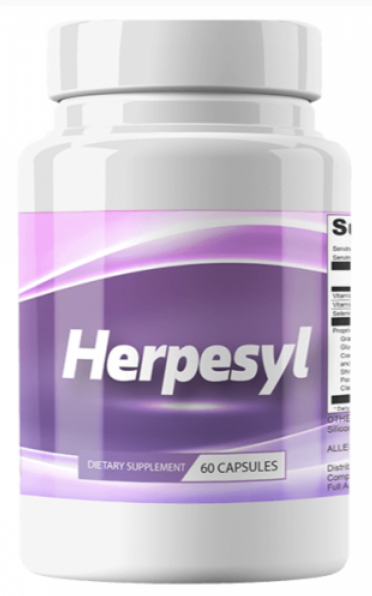Herpes is a viral infection with no known cure, whether cold sores or the STI. Once you’re infected, the virus will remain in your nerve cells for life. But over time, herpes outbreaks can become less frequent and less severe. Nonetheless, taking certain vitamins for herpes outbreaks may support the immune system and help suppress them.
Effective Vitamins for Herpes
Certain vitamins may help treat herpes by reducing healing times, according to studies we’ll look at below. Antioxidant vitamins (like vitamins A, C, and E) cure free radical damage brought about by environmental toxins and aging. They also help repair and protect the skin from infections, including herpes. Other vitamins that may help with herpes are Vitamin D and Vitamin B12.
Be sure to see our updated guides to topical treatments and oral supplements.
Anything that can help you to live more comfortably with an otherwise irritating condition is worth looking into.
WebMD.com suggests that a diet that’s rich in antioxidants is good for overall skin health. Below we’ll cover the vitamins that are known to or can potentially help with herpes, and details on getting enough of them.
1. Vitamin A
An intriguing study was done by the University of Washington in 2000. It involved women who had both the HIV virus and genital herpes.
The study surprisingly concluded that women who took birth control pills or injectable shots and still got pregnant were at a greater risk of contracting genital herpes. Women who weren’t pregnant and didn’t use birth control pills or shots were at a great risk of developing genital herpes if they had an acute deficiency of vitamin A in their bloodstream.
While this study didn’t directly link a deficiency of vitamin A with the risk of genital herpes infection, it does suggest that vitamin A helps in promoting immune system health.
The recommended daily intake of vitamin A in people over 14 years of age is 900mcg for men and 700 mcg for women. If one prefers to use vitamin A supplements rather than through the diet, the recommended daily intake for men is 6000 IU, and for women it’s 4000 IU. (Now Foods Vitamin A, 25000 IU from Fish liver oil, 250 Soft-gels)
Sources of Vitamin A: Excellent sources of vitamin A include foods such as beef liver, spinach, sweet potatoes, carrots and pumpkin. Cooked carrots are perhaps the best way to get this vitamin.
2. Vitamin C
Vitamin C is found naturally in a lot of vegetables and fruits and also sold over the counter as a dietary supplement. According to a study published in December 2005 in ‘Alternative Medicine Reviews’ by Alan R. Gaby, a holistic medicine specialist, since the 1930s doctors have known that high vitamin C intakes can fight herpes by deactivating the herpes simplex virus (1). In the study, Dr Gaby suggests the intake of 10,000 mg of supplements daily to manage an active herpes outbreak and 500-3,000 mg daily to prevent future herpes outbreaks.
Sources of Vitamin C: For people who want to focus on foods with vitamin C, sources include juices and citrus fruits, bell peppers, tomatoes, strawberries, leafy greens, broccoli, white and sweet potatoes, papaya, cantaloupe, watermelon, mango, winter squash, cauliflower, brussels sprouts, cabbage, blueberries, raspberries, cranberries and pineapples.
Vitamin C Supplement: (Vitamin C-1000 Sustained Release with Rose Hips, 250 Tablets.)
3. Vitamin E
Vitamin E is found naturally in grain, vegetables and fruits. Unlike vitamin C, the use of this vitamin for herpes has been with topical applications. Applying vitamin E topically can ease discomfort in as little as fifteen minutes, but sometimes up to 8 hours. There may be faster healing, especially when the vitamin is applied repeatedly, up to 4 times daily. (Here’s a Topical Vitamin-E Cream.)
Sources of Vitamin E: For those who want foods with vitamin E, sources include green vegetables like spinach and broccoli, and vegetable oils derived from sunflower, safflower or wheat germ. Other food sources include flax seed oil, wheat germ oil, sunflower seeds, almonds and hot peppers.
4. Vitamin D
Vitamin D is a natural antiviral substance that is critical for human survival, as well as potent in fighting off herpes outbreaks.
A Japanese study showed that Vitamin D is more effective — far more effective — at preventing the flu than a vaccine! The way Vitamin D works is by stimulating your immune system and rallying T cells to start fighting off infections. Unfortunately, more than half of the population is lacking in this vital nutrient.
Sources of Vitamin D: To make sure you’re getting enough Vitamin D, get enough sun. If you’re getting sun in the right conditions, it usually only takes 10-15 minutes of sun exposure per day. But if you want to use supplements to get enough vitamins for herpes, you can take a Vitamin D3 supplement.
5. Vitamin B12
Vitamin B12 is something many modern people are lacking enough of. Make sure you’re getting enough B12 and all group B vitamins if you want to manage herpes outbreaks, because these vitamins reduce stress that leads to outbreaks. You can get your B group vitamins by taking a “Balanced B Complex” like this one. There’s also a B-Complex with Vitamin C Stress Formula. Foods high in Vitamin B12 are shellfish, skim milk, swiss cheese, and fortified cereals and soy products.
Foods and Herpes
For herpes, high-protein, high-lysine foods may help: dairy like milk, cheese, and yogurt; and poultry like turkey and chicken. For antioxidants and vitamins for herpes, strawberries, cherries, peppers, apples, tomatoes, mango, and pomegranates are good. Other foods include oranges, tangerines, pumpkin, carrots, yellow squashes, bananas, lemons, grapefruit, spinach, green kale, lettuce, broccoli, sea vegetables, watermelon, cucumber, brussels spouts, green tea, black berries, blueberries, and dark-skinned grapes. For more information, you can read our article about herpes and diet.
You can check your vitamin levels by asking your doctor or a nutritionist about testing options.












